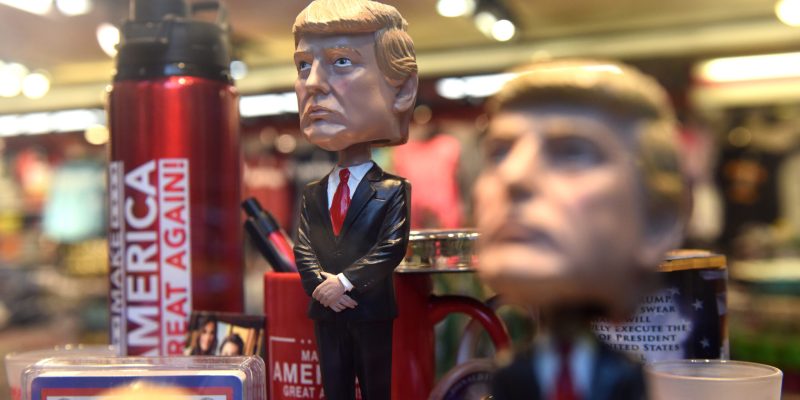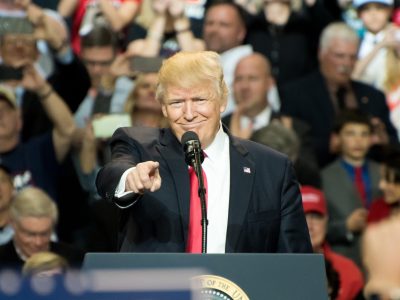
Analysts and economists have voiced serious concerns regarding the economic repercussions of former President Donald Trump’s proposed tariff hikes, warning that these measures could significantly elevate inflation rates while curbing employment growth.
As Trump campaigns for a return to the White House, his tariff proposals could reshape the US economy, leading to dire consequences for consumers and businesses alike.
Recent studies from financial institutions indicate that if enacted, these tariffs could result in a substantial decline in job creation and a sharp rise in consumer prices, prompting debates about the long-term sustainability of such policies.
Inflation to rise, job growth to slow: Morgan Stanley’s analysis
In a recent analysis, economists from Morgan Stanley projected that implementing a broad 10% tariff on global imports, coupled with a staggering 60 percentage-point increase on imports from China, would have severe implications for the US economy.
Led by economist Seth Carpenter, the team noted in a research report that “if the proposed tariffs are fully implemented, we estimate a near-term acceleration in the inflation rate and a delayed drag in GDP growth.”
The tariffs would potentially push average tariffs on US industries to between 25% and 35%, affecting approximately half of the sectors within the economy.
Morgan Stanley’s analysis suggests that such hikes would lead to a considerable increase in inflation, with the Personal Consumption Expenditures (PCE) price index, the Federal Reserve’s preferred inflation measure, likely rising by 0.9 percentage points over four quarters.
According to economists, “the inflationary effect happens more quickly, judging from history.” This rapid increase in prices could dampen consumer spending and slow economic growth further.
In addition, Morgan Stanley anticipates a 1.4 percentage-point reduction in GDP growth over several quarters as higher tariffs adversely affect both investment and consumption.
The potential positive contribution to GDP from decreased imports is expected to be insufficient to counterbalance the negative impact of reduced domestic demand.
Monthly payroll gains could fall by up to 70,000
The economic model from Morgan Stanley also forecasts a notable slowdown in job growth, predicting that monthly payroll gains, which have averaged 184,000 in 2024, could drop by 50,000 to 70,000 jobs per month if the tariffs are enforced.
“The magnitude of the economic effect will depend on the details,” the analysts stated.
Critical factors include the scale of tariff increases, the timing of their implementation, potential retaliatory actions from other nations, and currency market reactions.
Despite these grave predictions, Trump campaign adviser Brian Hughes dismissed concerns about economic damage, claiming that Wall Street’s fears echo those expressed in 2016 when Trump first proposed his trade policies.
“Trump’s policies then — as now — will fuel growth and drive down inflation,” Hughes asserted.
Peterson Institute predicts GDP decline
Similarly, the Peterson Institute for International Economics released a report indicating that Trump’s proposed tariffs and immigration policies could harm US economic growth, elevated inflation, and lead to long-term job losses.
Their analysis suggests that even under a “low” scenario—where 1.3 million undocumented workers are deported and other countries refrain from retaliating—employment could drop by 2.7% by 2028, while inflation may reach 6% by 2026.
This scenario predicts consumer prices could be 20% higher by 2028 compared to baseline projections.
In a more severe “high” scenario, assuming significant retaliatory tariffs and the deportation of 8.3 million undocumented workers, inflation could skyrocket to 9.3% by 2026, and GDP might decline by 9.7% by 2028.
The Peterson Institute warns that these policies would create a significant inflationary impulse and substantial job losses, particularly in the manufacturing and agricultural sectors.
Long-term risks of tariff policies
The report also expressed concern about the potential erosion of Federal Reserve independence, which could lead to “permanently higher inflation” and long-term price instability.
By 2040, US consumer prices could be 41% higher than current baseline estimates, according to the Peterson Institute’s findings.
These alarming projections underscore the long-term economic risks associated with aggressive tariffs and restrictive immigration policies, urging policymakers to reconsider the ramifications of such proposals on the broader economy.
The post Trump’s tariff proposals could trigger economic downturn: analysts predict higher inflation and job losses appeared first on Invezz









